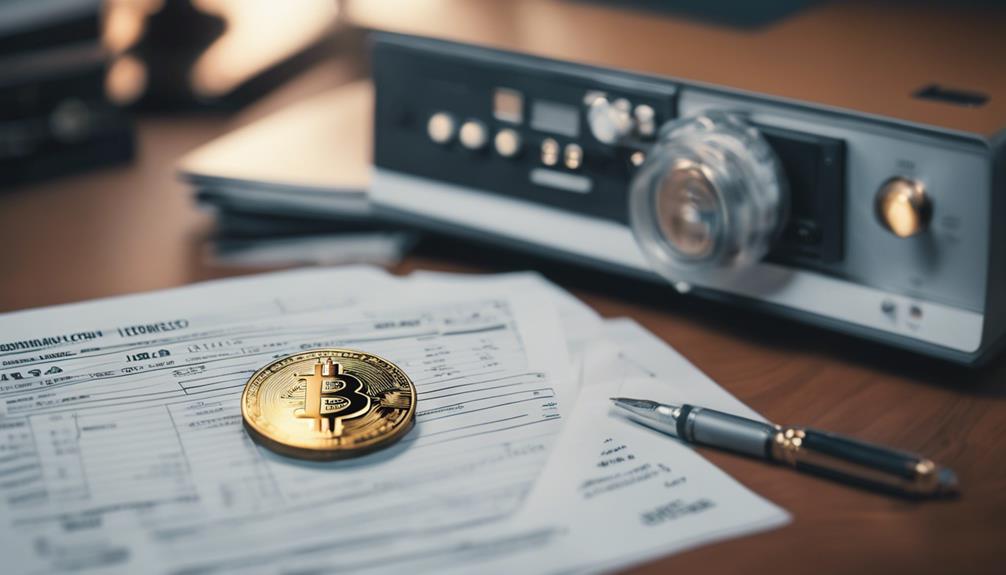Bitcoin is a safe choice for storing money, thanks to security measures such as hardware wallets, multi-signature wallets, and secure backups. Hardware wallets like Ledger or Trezor keep private keys offline, greatly reducing the risks of hacking. Enhance security by diversifying storage with cold storage, hardware wallets, and paper wallets. Minimize the risk of total loss by keeping software updated, avoiding scams, and enabling two-factor authentication. Ensure a secure environment with strong passwords and encryption. Bitcoin provides a range of wallet options for comprehensive investment protection.
Key Takeaways
- Bitcoin offers secure storage using hardware wallets and multi-signature wallets.
- Secure storage practices safeguard investments from potential theft and loss.
- Use reputable wallet providers and implement backup strategies for emergencies.
- Diversify storage with cold storage, paper wallets, and software wallets.
- Mitigate total loss risks by enabling two-factor authentication and updating software regularly.
Bitcoin Security Measures
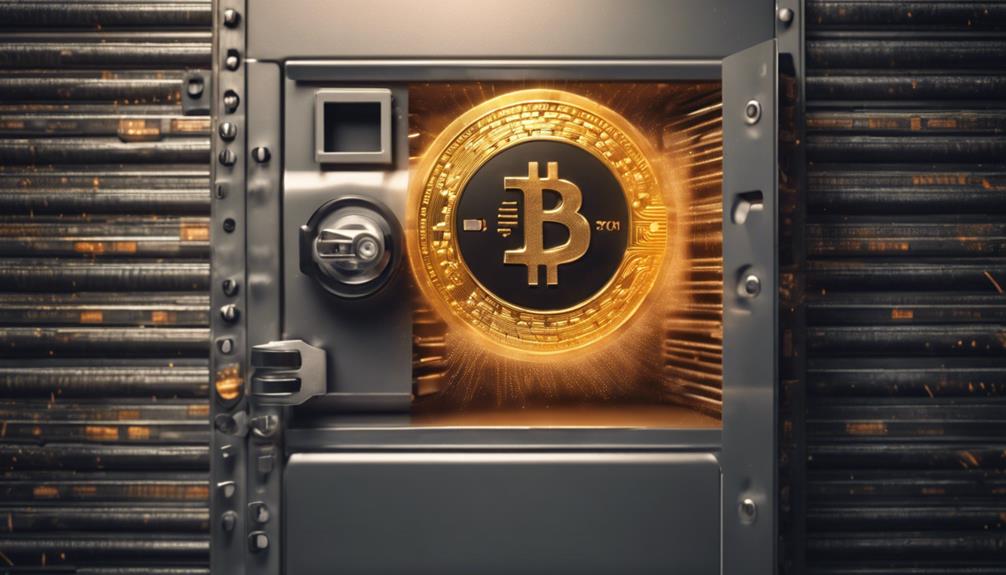
Bitcoin security measures are vital for safeguarding private keys and protecting funds from potential threats. When it comes to storing Bitcoin securely, utilizing hardware wallets is a recommended practice. These wallets keep private keys offline, minimizing the risk of potential hacks compared to online storage options.
In addition, multi-signature wallets provide an extra layer of security by requiring multiple keys to authorize transactions, reducing the chances of unauthorized access.
To enhance security further, Bitcoin owners should consider implementing two-factor authentication on their wallets. This additional step helps prevent unauthorized access even if private keys are compromised. Moreover, establishing secure backup strategies is essential in case of emergencies or loss of access. Creating encrypted backups and storing them in multiple secure locations ensures that Bitcoin ownership remains intact even in challenging situations.
Importance of Secure Storage

Ensuring secure storage practices for digital assets is paramount in safeguarding against potential theft and loss. When it comes to safeguarding your crypto investments, the proper management of private keys and selecting the right wallet are critical steps. Here is a breakdown of essential factors to take into account:
| Aspect | Description | Importance |
|---|---|---|
| Secure Storage | Storing your private keys in secure hardware wallets or encrypted digital vaults protects against hacking and unauthorized access. | High |
| Backup and Recovery | Implementing backup strategies and recovery plans ensures that you can regain access to your funds in case of device loss or failure. | Essential |
| Reputable Wallet Providers | Choosing trusted and reputable wallet providers reduces the risk of falling victim to fraudulent schemes or unreliable services. | Critical for security |
| Safeguarding Funds | Safeguarding your funds through secure storage practices is crucial for protecting your investment from potential theft and loss. | Fundamental for long-term financial security |
Types of Bitcoin Wallets

When considering the secure storage of digital assets like Bitcoin, it is essential to understand the various types of wallets available for safeguarding your investments.
Bitcoin wallets come in different forms, including hardware wallets, software wallets, mobile wallets, desktop wallets, and paper wallets. Hardware wallets, such as Trezor and Ledger, are considered the most secure option for storing significant amounts of Bitcoin over the long term.
On the other hand, paper wallets offer an offline method for securely storing Bitcoin private keys and addresses. Choosing the right type of wallet depends on factors such as security, convenience, and technical proficiency.
Different wallet brands like Coinbase, Binance, Guarda, and Mycelium offer varying features and security levels to cater to individual preferences. Understanding the differences between these wallet types can help you make an informed decision on how best to protect and manage your Bitcoin investments effectively.
Hardware Wallets for Bitcoin
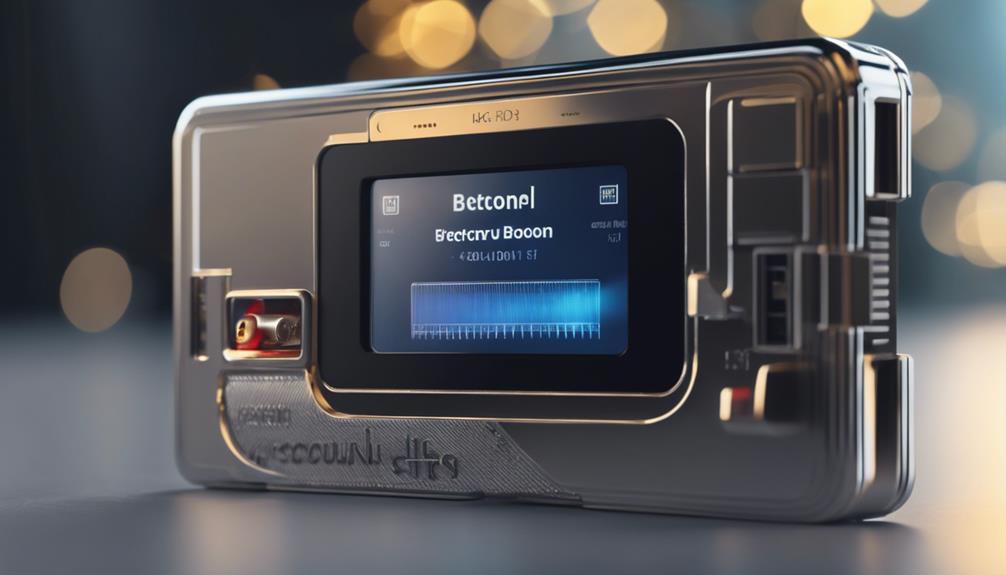
Hardware wallets, as physical devices created to securely safeguard private keys for cryptocurrencies, provide an offline storage solution for enhanced security. When considering the safest options for storing significant amounts of Bitcoin, hardware wallets stand out for their robust protection against online hacking attempts.
Here are some key points to understand about hardware wallets:
- Offline Storage: Hardware wallets keep private keys offline, reducing the risk of unauthorized access compared to online storage methods.
- Immune to Hacking: Since hardware wallets are not connected to the internet except when needed, they are less susceptible to hacking than online wallets.
- Leading Brands: Popular hardware wallet brands such as Ledger, Trezor, and KeepKey offer users a variety of features and price points to choose from.
- Secure Storage: Hardware wallets are designed to provide a secure and convenient way for users to access and manage their cryptocurrency holdings while ensuring the utmost protection for their private keys.
Paper Wallets for Bitcoin

Paper wallets, known for their offline storage of Bitcoin private keys on physical paper, offer a highly secure method of safeguarding cryptocurrency assets. These wallets are a form of cold storage, ensuring the private keys are not accessible online, thereby protecting them from potential hacking attempts. Users can generate paper wallets using various online tools or software for free, making them a cost-effective option for long-term storage of Bitcoin. It is essential to store paper wallets in a secure location to prevent physical damage or loss, ensuring the safety of the stored assets. Here is a table summarizing key points about paper wallets:
| Aspect | Description |
|---|---|
| Offline Security | Private keys are stored offline |
| Cost-effective | Generating paper wallets is free |
| Long-term Storage | Ideal for securely storing Bitcoin long-term |
Multi-Signature Wallets Explained
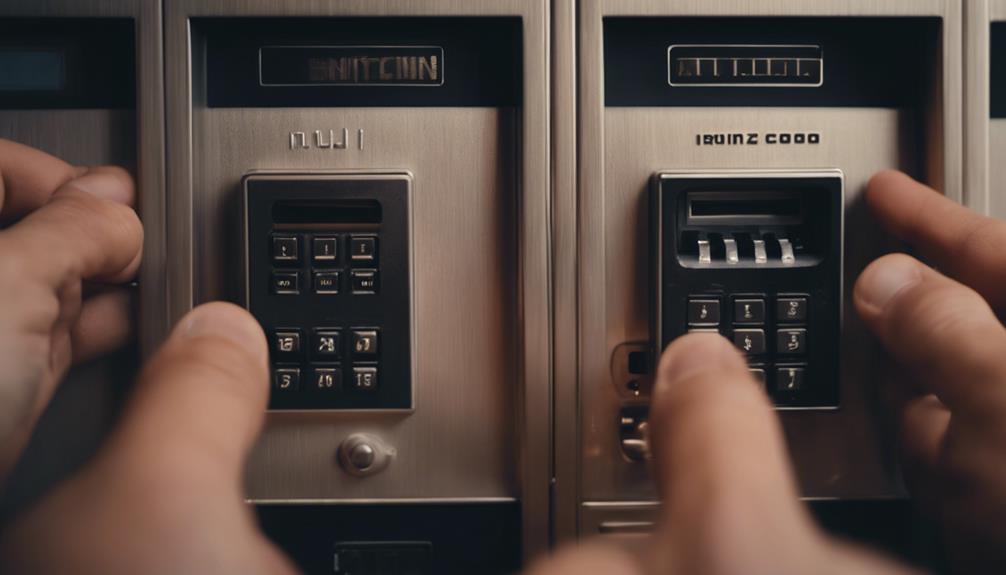
Multi-signature wallets, also known as multi-sig wallets, require multiple private keys to authorize transactions, making them more secure. This added layer of security is beneficial for businesses or shared accounts where multiple approvals are necessary.
Understanding how multi-signature works, its benefits, and security considerations is essential for effectively safeguarding cryptocurrency funds.
How Multi-Signature Works
Utilizing a sophisticated security protocol, multi-signature wallets provide enhanced protection for digital assets by requiring multiple private keys to authorize transactions. This method reduces the risk of a single point of failure and unauthorized access.
Here are key points to understand how multi-signature wallets work:
- Multiple Signatures: Transactions necessitate approval from more than one private key holder.
- Customizable Security: The required number of signatures can be tailored based on security needs.
- Enhanced Accountability: Ideal for businesses, this technology promotes accountability among key stakeholders.
- Safeguard Mechanism: In case of a compromised key, multi-signature wallets offer protection against potential loss or theft, making them reliable for secure storage solutions.
Benefits of Multi-Sig
When it comes to securing digital assets and minimizing the risk of unauthorized access, multi-signature wallets offer an advanced level of protection through requiring multiple private keys for transaction authorization.
These wallets are particularly beneficial for shared accounts or businesses, as they reduce the unauthorized access risk by distributing keys among different parties.
By adding an extra layer of protection, multi-signature wallets enhance security and provide a safeguard for funds against potential theft or fraud. This security enhancement can offer peace of mind, especially when storing significant amounts of cryptocurrency.
Security Considerations
Enhancing the protection of digital assets through the implementation of multi-signature wallets involves necessitating multiple private keys for transaction authorization. This approach greatly boosts security by reducing the risk of unauthorized access to crypto funds.
Here are key points to keep in mind:
- Users can set up multi-signature wallets to mandate two or more signatures for any transfer, ensuring added layers of protection.
- Multi-signature wallets are ideal for business accounts, joint accounts, or scenarios where multiple parties need to approve transactions.
- Each key holder in a multi-signature setup can have a unique role, such as a spending key, a backup key, or a custodial key.
- Multi-signature wallets provide a decentralized approach to security, making it harder for hackers to compromise funds compared to single-key wallets.
Diversifying Storage Strategies
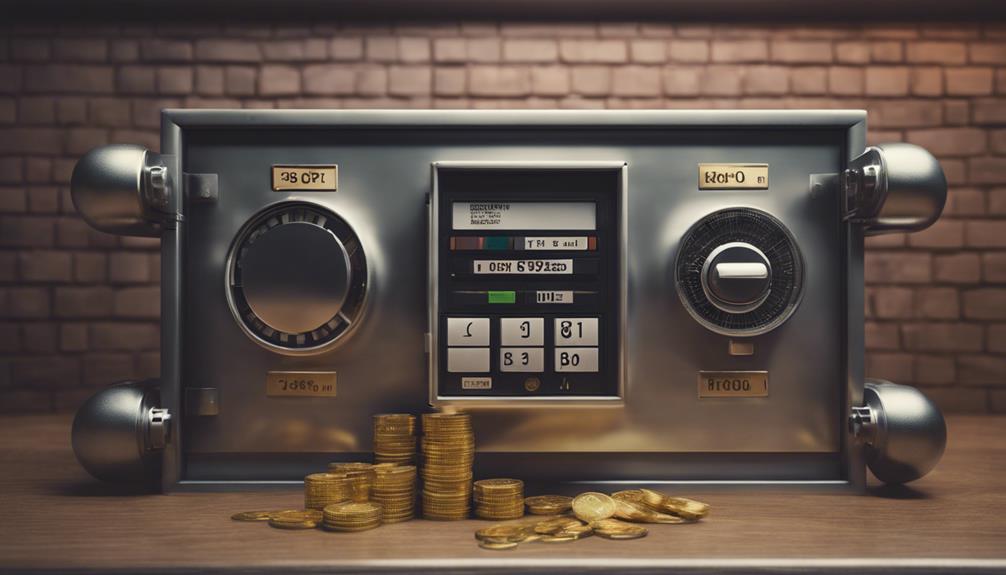
Diversifying storage strategies for Bitcoin involves the vital allocation of funds across various types of wallets to mitigate the risk of potential losses due to security breaches or failures. By spreading your funds across different types of wallets such as cold storage, hardware wallets, paper wallets, and software wallets, you can reduce the total loss risk in case of a security breach or wallet failure.
Implementing security measures like backup and recovery plans is essential to guarantee access to your funds even in the event of unforeseen circumstances. Additionally, geographical distribution of your storage options adds an extra layer of security against potential risks.
Safeguarding Against Unauthorized Access

To strengthen the security of your Bitcoin holdings, it is crucial to utilize multi-signature wallets that require multiple keys for transaction authorization. These wallets enhance protection against unauthorized access by mandating the approval of more than one key holder for any transaction to go through.
To further secure your holdings, consider the following measures:
- Enable two-factor authentication on your wallets to add an additional layer of security against unauthorized logins.
- Regularly update your wallet software to address any potential security vulnerabilities and guarantee protection against unauthorized access.
- Avoid sharing your private keys or seed phrases with anyone to prevent unauthorized access to your cryptocurrency holdings.
- Implement secure backup strategies, such as storing encrypted backups in multiple secure locations, to guard against unauthorized access resulting from data loss.
Mitigating the Risk of Total Loss
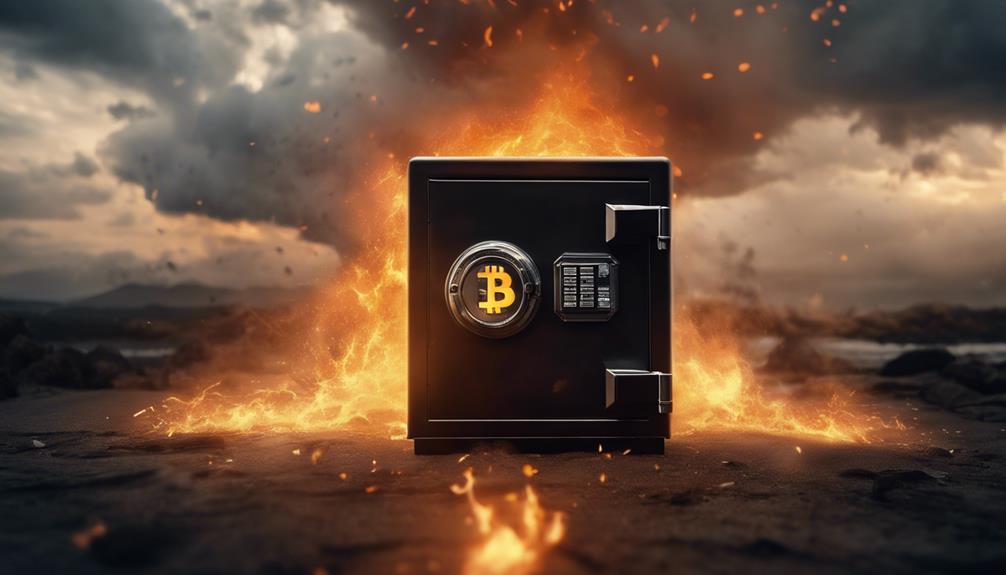
Mitigating the risk of total loss in Bitcoin holdings requires implementing robust security measures and strategic storage practices. Utilizing hardware wallets or cold storage methods can greatly enhance security by keeping Bitcoin offline and out of reach from potential hackers.
Secure backup strategies, such as encrypted backups stored in multiple secure locations, are vital for safeguarding against data loss. Remaining vigilant against phishing scams and practicing safe online behavior can help prevent unauthorized access to Bitcoin holdings.
Additionally, enabling two-factor authentication, regularly updating wallet software, and ensuring device security are important steps in mitigating the risk of total loss. By incorporating these best practices into Bitcoin security protocols, individuals can effectively reduce the likelihood of substantial financial losses due to theft or data breaches.
Prioritizing data loss prevention and safe storage practices is crucial in maintaining the security and longevity of Bitcoin investments.
Creating a Secure Environment
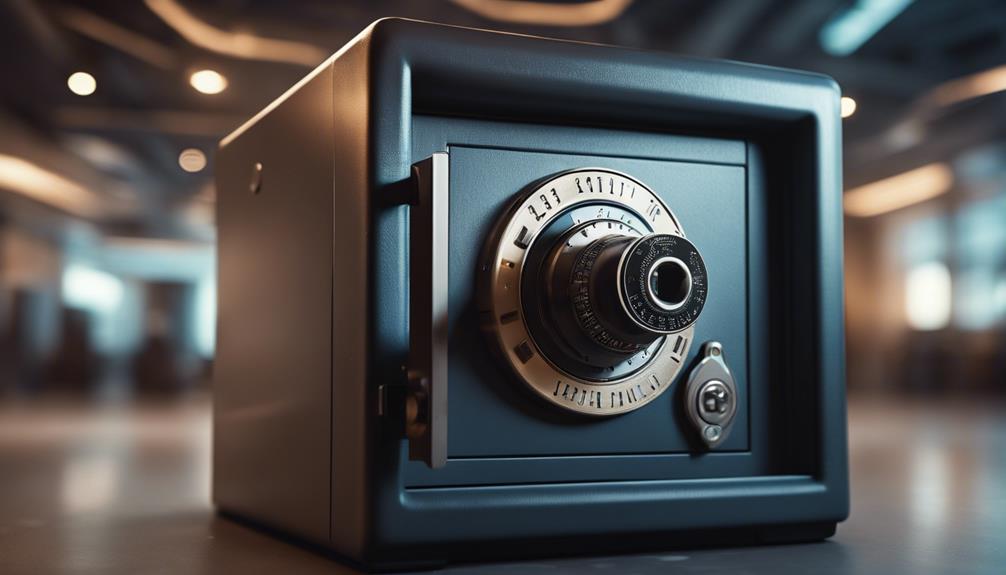
Establishing a secure environment is paramount in safeguarding Bitcoin holdings against potential theft or loss. To create a robust defense for your cryptocurrency assets, consider the following measures:
- Cold Storage: Utilize hardware wallets such as Ledger or Trezor for offline storage of Bitcoin keys, keeping them isolated from internet-connected devices.
- Strong Password Protection and Encryption: Implement complex passwords and encryption techniques to secure access to your Bitcoin holdings, making them difficult for unauthorized users to breach.
- Backups: Maintain backups of your wallet in multiple secure locations to prevent data loss in case of device failure or damage.
- Wallet Software Updates and Two-Factor Authentication: Regularly update your wallet software to patch vulnerabilities and enhance security. Additionally, enable two-factor authentication to add an extra layer of protection to your accounts.
Frequently Asked Questions
Is It Worth Keeping Money in Bitcoin?
While Bitcoin offers potential for investment growth, its volatility and regulatory uncertainties make it a risky choice for securely storing money. Consider factors like market risk, regulatory frameworks, and financial advisors' recommendations, limiting exposure to less than 5% of a portfolio.
Diversifying investments with stable assets can provide a more secure approach to long-term financial planning and retirement savings. Prioritize stability and security when making decisions about storing money in Bitcoin. While Bitcoin can be a volatile asset in the short term, holding Bitcoin for the long term may offer significant growth potential as adoption and acceptance continue to rise. However, it’s crucial to balance such investments with traditionally stable assets like bonds or index funds to reduce overall risk. By diversifying carefully, you can harness the benefits of growth-oriented assets while maintaining a solid foundation of financial security.
Is It Safe to Leave Money in Bitcoin?
When contemplating the safety of leaving money in Bitcoin, it is essential to recognize the decentralized and secure nature of this digital asset. The cryptographic security features, such as private keys and multi-signature wallets, contribute to the protection of funds.
While Bitcoin's volatility is a factor to take into account, the long-term growth potential and resilience as a store of value are significant.
What Is the Most Secure Way to Own Bitcoin?
The most secure way to own Bitcoin is through a hardware wallet. A hardware wallet stores your private keys offline, making it impervious to hacking attempts.
This method provides enhanced security compared to online storage options. Hardware wallets are portable, support multiple cryptocurrencies, and shield your assets from digital threats.
How Do I Store Bitcoins Securely?
To store bitcoins securely, consider using hardware wallets, paper wallets, or multi-signature wallets. Hardware wallets offer the highest level of security by keeping your coins offline.
Paper wallets provide a cost-effective cold storage option but require safe physical storage.
Multi-signature wallets enhance security by requiring multiple keys for transactions.
Diversifying storage across different wallet types can reduce the risk of total loss and bolster overall security for your bitcoins.
Conclusion
In summary, the security of Bitcoin storage is essential for safeguarding one's assets. By utilizing hardware wallets, paper wallets, and diversifying storage strategies, individuals can mitigate the risk of unauthorized access and total loss. Creating a secure environment is vital in protecting investments.
Remember, the key to financial stability lies in implementing robust security measures to guarantee the safekeeping of your digital assets. Trust in the security of your Bitcoin storage for a secure financial future.



